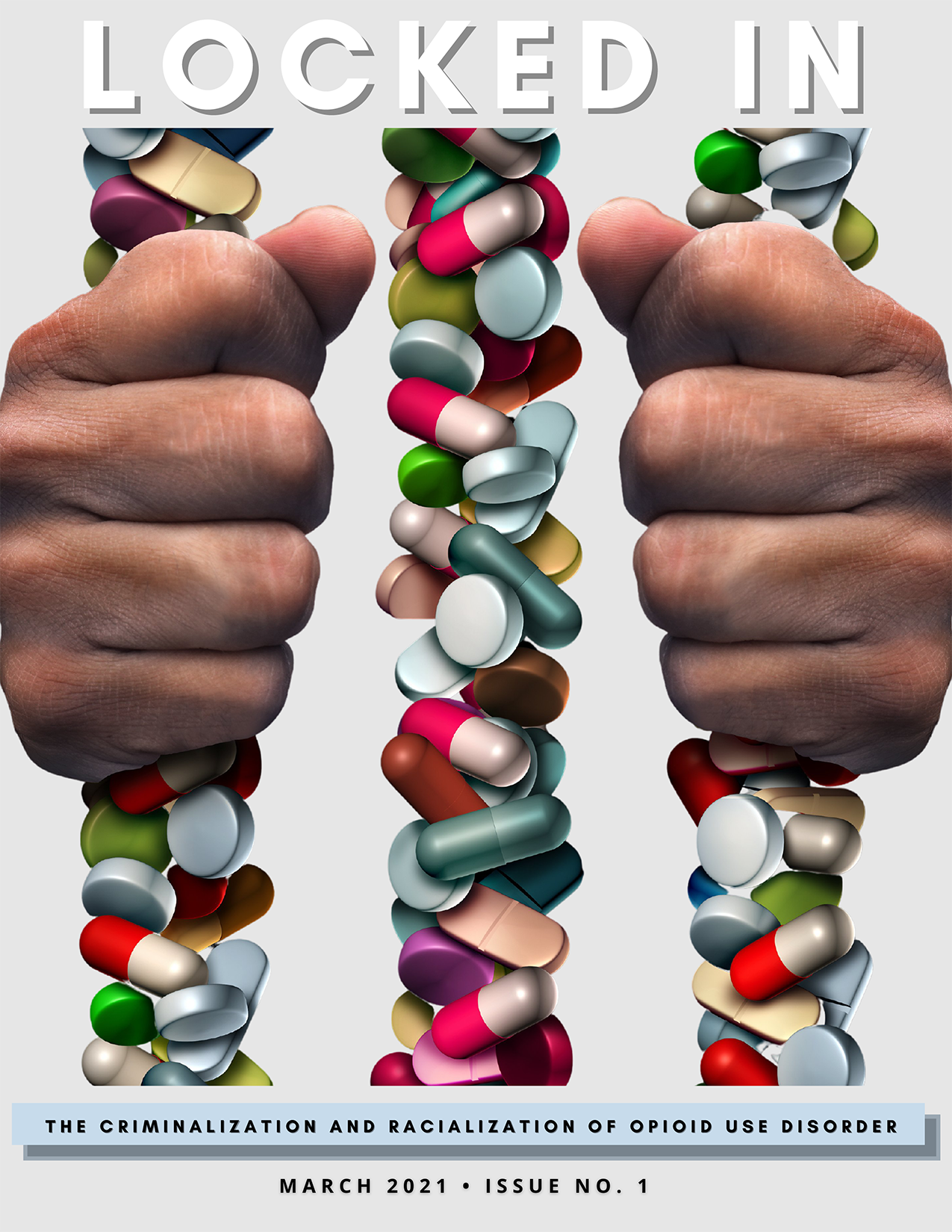Locked In: The Criminalization and Racialization of Opioid Use Disorder

By: Daniela Alvarado, Ella Bouris, Emily Kohl, Leah Savage
In this issue of Locked In, we explore the racialized history of the criminalization and medicalization of opioid addiction, and how this inequality has shaped the carceral landscape and lived experiences of incarcerated folks in America today: if the opioid epidemic is seen as a white issue, then why are Black and brown people primarily the ones in prison for it?
The goal of our magazine is to holistically examine the way that substance use disorder, and more specifically opioid use disorder, has become part and parcel of the carceral landscape of present-day America. Ultimately, we aim to imagine a different way forward. We analyze how drug laws have reflected the sociopolitical climate at the time of their creation, and how these laws have been weaponized and used as a tool of oppression and disenfranchisement of certain marginalized communities. To supplement this historical analysis, we examine the changing scientific attitudes and moralizing narratives surrounding addiction and the various lenses through which it has historically been looked at. Although our magazine critically examines addiction’s role in the development and maintenance of institutions of mass incarceration, it is our belief that one cannot understand this purely through a social and historical lens. The complex biology of addiction, and more importantly how people understand this biology informs the way they perceive addiction- is it a disease of the mind or a sign of weak morals? This perception has shaped the social and political landscape out of which drug legislation was borne, and this criminalization has ultimately driven the evolution of the prison-industrial complex and how incarcerated individuals with opioid use disorders are treated. Through the lens of abolition, we envision the decriminalization of drug use and drug addiction as well as the deinstitutionalization of treatment for opioid use disorders. Prisons at their core are white supremacist institutions which have always been leveraged against Black and brown communities, and thus we believe that reform is not a viable long-term solution. We have also included resources and non-profit organizations to donate to/volunteer with in hopes that we can implement real change outside of the scope of this class.